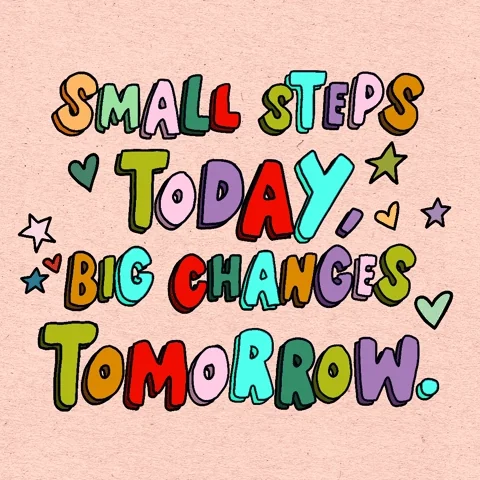Changing your college major can feel like hitting the reset button — exciting, a little nerve-wracking, and full of unknowns. Whether you made the switch because your interests evolved, your original path didn’t feel quite right, or you discovered a new passion, you’re not alone.
I switched my undergraduate major a whopping four times before settling on my degree in sociology.
 Photo by Element5 Digital on Unsplash
Photo by Element5 Digital on UnsplashNow that you've made the leap, the big question is: What’s next? This is the perfect time to recalibrate, set fresh goals, and build a new roadmap to academic success that fits your current state.
Assess the Situation
Every student's reasoning for switching majors and programs is unique.
Perhaps your favourite subject was English in high school, and once you got a taste of university-level English, you had second thoughts.
Maybe you thought physics would be a breeze, but now your GPA is cracking under the pressure — and not even Newton can save you from this force.
Regardless of what has brought you to this point, it is important to understand what you are working with. Depending on your school's structures and policies, it may be possible to use some of the credits toward other requirements, such as breadth requirements (courses that give you exposure to other disciplines) or general English or writing credits.

What drove me to switch my major was my advisor sitting me down and informing me that I had completed too many credits to be minoring in sociology. I had to make a decision to switch majors. I often joke that I got my degree in sociology "accidentally".
If I were to do it again, I'd do it differently. Here's my advice:
1. Assess your course progress.
How far along are you in your current program? The first year is an easy time to switch. If you are in your third and fourth year, this requires more finessing. Consider an option like a double major or adding a minor.
2. Gather records and analyze.
Are you struggling with your current major but thriving in general arts courses? Is there a specific area you are noticing big improvements or declines in?
Organize your completed courses and credits into:
general education/core Requirements
major courses (from your current major)
eectives
Gathering your academic records, like an unofficial transcript (cumulative and major GPA) and degree audit (if available), along with the syllabi or course outlines, can be helpful, especially if you’ll transfer credits.
3. Look into transcript trends.
Are your grades improving, declining, or staying consistent?
Understanding your transcript doesn’t have to be overwhelming, but it’s essential if you're considering a major change. A quick review of your academic history will help you make an informed decision and plan your next steps.
Analyzing strengths or challenges to determine where you're performing the best and recognizing trends will guide your academic success and career direction.
4. Compare your new major with your previous major.
How can you align your goals to achieve academic success, which will look different in your new major?
As you figure out the program requirements (including core requirements, electives, and prerequisites), explore the skills and experiences needed to achieve success. Remember to examine the whole picture, including your passions, interests, and future career paths.
Once armed with this information, you can set specific and effective goals.
Quiz
Javier is considering switching his major from biology to kinesiology. He is a third year student and enjoys learning about science. What should he consider before he switches programs? Select all that apply:
Be SMART
Setting goals after switching majors might feel overwhelming — And that's perfectly normal. What matters is being SMART about your goals for academic success. That's not just a saying, it's also an acronym.

SMART goals are a popular goal-setting framework that emphasizes being specific and using clearly defined objectives to meet your goals. This stands for creating goals that are:
Specific
Measurable
Achievable
Relevant
Time-bound
For example, when I was switching majors and wanted to find academic success, my SMART matrix looked like this:
Specific: I will create a semester-by-semester academic plan that outlines the required courses for my new major.
Measurable: My plan will include all required core courses, electives, and any prerequisites I still need to complete.
Achievable: I will use my degree audit tool, course catalog, and meet with an academic advisor for guidance.
Relevant: This plan will help me stay on track to graduate and succeed academically in my new field of study.
Time-bound: I will complete this academic plan before course registration opens for next semester.
Each person's goals are unique, and your SMART outline will reflect that. Get specific and personalize it to your situation!
WOOP It Up
While SMART goals are structured and quantifiable, WOOP incorporates a four-step process that focuses on mental contrasting.

WOOP stands for:
Wish: Think about what you want to achieve. This should be challenging, realistic, and attainable.
Outcome: What would it look and feel like to have achieved your goal? Focus on describing how you'll know you have achieved your desired outcome.
Obstacle: Focus on imagining an obstacle that you can control from within. This would be: thoughts, desires, bad habits, etc.
Plan: Now that you have your ideal outcomes in mind, it's time to put those thoughts into action. Develop a step-by-step plan to reach your goals.
The WOOP framework understands that reaching academic success is a journey and doesn't always follow a straight path. It provides room for personalization and flexibility.
After switching majors, you can use WOOP to:
Reflect and reset — "What do I want to accomplish this term?"
Apply it before big assignments or exams.
Revisit "Wish" and "Outcome" to keep you motivated during tough points.
WOOP works in a cycle, giving you clear steps to return to and reflect on, instead of just focusing on specific results.
Using the same example, a WOOP framework would look like this:
Wish: I want to succeed academically in my new major.
Outcome: I will feel more confident and focused, with a clear academic plan that helps me stay on track toward graduation.
Obstacle: I’m not yet familiar with the course requirements or how my previous credits apply, which makes me feel overwhelmed.
Plan: If I start to feel confused or stuck, then I will schedule a meeting with an academic advisor and use the degree audit tool to get clarity on my next steps.
 I want to switch my major from education to sociology. Help me label the stages of the WOOP framework below:
I want to switch my major from education to sociology. Help me label the stages of the WOOP framework below:
I'm hoping to change my major to something that feels like a better fit for my interests and future goals.
If I switch to sociology, I’ll feel more aligned with my interests and more motivated in my studies.
I worry that others will judge my decision or think I’ve failed, and I sometimes second-guess whether I’m making the right choice.
If I start to feel uncertain or worried about others’ opinions, then I will remind myself of the reasons behind my decision and talk to an academic advisor or a trusted friend for support.
Quiz
Which part of the WOOP framework does this sentence represent? "If I start to feel uncertain or worried about others’ opinions, then I will remind myself of the reasons behind my decision and talk to an academic advisor or a trusted friend for support."
Ask a Professional
When you're looking for someone to do renovations or fix your car, you don't just ask the first person you see on the street, right? You'd probably seek out expert help — someone trained in the field. Academic planning and switching your major or program is no different. When in doubt, ask for help...and make sure to ask a professional.
Your friends, family, and classmates will all have opinions and perspectives that might be helpful. If you're unclear on what your new major requires, ask an academic advisor.
 Photo by Nathan Dumlao on Unsplash
Photo by Nathan Dumlao on UnsplashMeaningful change starts with practical, actionable steps. You can start by:
Connecting with your advisor.
Using your school's learning centre to build study skills and draft a plan.
Joining a study group on campus or check out your digital options.
Quiz
Henry wants to consult his academic advisor about switching from biology to psychology. What should he bring up in the meeting?
Be Kind to Yourself
When things shift, it’s easy to get discouraged or be hard on yourself — but that won’t move you forward. Instead, practice self-compassion: treat yourself as kindly as you would a friend.
If you’re struggling, don’t hesitate to reach out — to your school’s counselling services or a mental health professional.
Pause, breathe, and reset. For practical tools, explore Dr. Neff's self-compassion practices.
 Photo by Tim Mossholder on Unsplash
Photo by Tim Mossholder on UnsplashTake Action
You've taken a big step by exploring your options. Be proud of yourself! 🎉
Remember that you have resources and people to support you as you figure out your next steps. Focus on evaluating your motivations, examining your options, and taking this process one step at a time.

To set yourself up for academic success as you switch majors:
Your feedback matters to us.
This Byte helped me better understand the topic.
